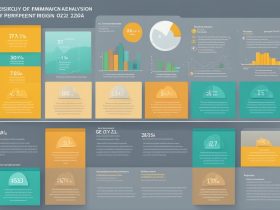Open university courses and fees; Open universities have revolutionized education by providing flexible learning opportunities for individuals from all walks of life. These institutions offer a wide range of courses designed to accommodate diverse interests and career goals.
One of the key aspects to consider when embarking on an educational journey is understanding the associated fees. In this introduction, we will explore the concept of open university courses and delve into the various fees involved, shedding light on how these institutions make education accessible to many.
Open universities are renowned for their inclusive approach to education. They cater to individuals who may have work commitments, family responsibilities, or geographical constraints that make traditional on-campus learning challenging.
These institutions provide a platform for students to pursue higher education, acquire new skills, and advance their careers without the need to attend physical classes regularly. Instead, students have the flexibility to study at their own pace, making education attainable for a broader audience.
While open universities offer numerous advantages, it’s crucial to understand the fees associated with enrolling in their courses. These fees typically cover various aspects of the learning experience, including tuition, study materials, and support services.
The fee structure may vary depending on factors such as the course level, duration, and the specific institution. However, open universities often strive to keep their fees reasonable, ensuring that education remains accessible to those who aspire to enhance their knowledge and skills. In the following sections, we will delve deeper into the specific types of fees that students may encounter when enrolling in open university courses.

Open university of fee structure (OUT Fees) 2023/2024
Students from SADC and EAC
Students from member nations are required to pay the equivalent of local tuition costs in accordance with the SADC and EAC Protocols. As demonstrated in the Fees Tables 1 and Table 3, additional expenses for logistical support, such as the transportation of study materials, the invigilation and freight of exams, the hiring of examination halls, etc., have been incorporated into their fees.
TABLE 1: THE FEES PER UNIT FOR VARIOUS MODES OF LEARNING
| S/N | Item | Cost per Unit (USD) for EAC and SADC students | Cost per Unit (USD) for NON- EAC and SADC students |
| 1 | Theoretical course by distance mode | 40 | 80 |
| 2 | Theoretical Course by Face to face | 60 | 120 |
| 3 | Field Practice | 70 | 140 |
| 4 | Teaching practice | 70 | 140 |
| 5 | Science Laboratory | 70 | 140 |
| 6 | Project/dissertation | 70 | 140 |
| 7 | Examination fees | 20 | 40 |
TABLE 2: BANK ACCOUNTS FOR VARIOUS INTERNATIONAL STUDENT FEES
| COUNTRY (Account Name) | Bank | Account number |
| Kenya (Egerton University) | Kenya Commercial Bank | 1101847530 |
| Namibia (Triumphant College) | First National Bank, Windhoek | 62100230789 |
| Rwanda (The Open University of Tanzania) | KCB Bank, Kigali Branch Swift code: KCBLRWRW | 4401310896 |
| Other Countries (The Open University of Tanzania) | NBC Limited, Corporate Branch SWIFT CODE: NLCB TZTX | 011105000670 |
TABLE 3: FEE SCHEDULE FOR CONTINUING STUDENTS DURING ACADEMIC YEAR UNDERGRADUATE AND NON-DEGREE
| NO | ITEM | FULL FOR EAC/SADC (USD) | FULL FOR NON-SADC/EAC (USD) |
| UNDERGRADUATE PROGRAMMES | |||
| 1 | Application fees | 30 | 30 |
| 2 | Examination fees paid annually | 240 | 460 |
| 3 | Student Organization fees | 10 | 10 |
| 4 | Student Identity card | 10 | 10 |
| Tuition Fees | |||
| 5 | B.Ed – Special Education | 2,400 | 6,000 |
| 6 | B.Sc. in ICT | 3,600 | 6,000 |
| 7 | Other Undergraduate programmes | 2,400 | 4,800 |
| NON DEGREE PROGRAMMES | |||
| 8 | Certificate Courses | 400 | 1,200 |
| 9 | Diploma in Primary Teacher Education (DPTE) | 1,200 | 2,400 |
| 10 | Other Diploma programmes | 1,200 | 2,400 |
List of courses offered at the Open University of Tanzania (OUT).
NON-DEGREE PROGRAMMES
- Certificate in Poultry Production and Health (CPPH)
- Diploma in Poultry Production and Health (ODPPH)
- Certificate in ICT – NTA Level 4
- Diploma in Computer Science – NTA Level 5-6
- Certificate in Early Childhood Education (CECE)
- Diploma in Early Childhood Education (DECE)
- Certificate in Early Childhood Education (CECE)
- Diploma in Early Childhood Education (DECE)
- Certificate in Foundation Course – (OFC)
- Certificate in Hairdressing and Beauty Therapy
- Certificate in Library and Information Studies
- Certificate in Youth Work
- Diploma in Youth Development Work,jointly with the Commonwealth Secretariat (CYP)
- Diploma in Primary Teacher Education (DPTE)
- Diploma in Open and Distance Learning (ODDEOL)
- Diploma in Library and Information Studies
Undergraduate Programmes
Faculty of Arts and Social Sciences
- Bachelor of Arts (B.A.)
- Bachelor of Arts in Tourism Management (BTM)
- Bachelor of Arts in literature (BALIT)
- Bachelor of Arts in Sociology (BA (Soc))
- Bachelor of Arts in Social Work (BA (SW))
- Bachelor of Arts in Journalism (BA (Journ))
- Bachelor of Arts in Mass Communication (BA (MC))
- Bachelor of Arts in Economics (BA Econ)
- Bachelor of Arts in English Language & Linguistics (BA ELL)
- Bachelor of Arts in Kiswahili & Creative Studies (BA KCS)
- Bachelor of Library & Information Management (BLIM)
- Bachelor of Arts in History (BA Hist)
- Bachelor of Community Economic Development (BCED)
- Bachelor of Arts in Natural Resources Assessment and Management (BA NRAM)
- Bachelor of Arts in Population and Development (BA PD)
- Bachelor of Arts in Philosophy and religious Studies (BA PRS)
- Bachelor of Arts in Public Administration (BA PA)
- Bachelor of Arts in International Relations (BA IR)
Faculty of Business Management
- Bachelor of Business Administration Accounting (BBA ACC))
- Bachelor of Business Administration Marketing (BBA MKT)
- Bachelor of Business Administration Finance (BBA FIN)
- Bachelor of business Administration Human resource Management (BBA HRM)
- Bachelor of Business Administration in International Business (BBA IB)
- Bachelor of Human Resource Management (BHRM)
Faculty of Science, Technology and Environmental Science
- Bachelor of Science (BSc.ICT))
- Bachelor of Science in Data Management
- Bachelor of Science with Education (B.Sc. Ed)) – Conducted jointly with the Faculty of Education
- Bachelor of Science in Environmental Studies (BSc ES)
- Bachelor of Science in Food, Nutrition and Dietetics (BSc FND)
- Bachelor of Science in Energy Resources (BSc ER)
- Bachelor of Science(B.Sc)
Faculty of Education
- Bachelor of Education Special Education
- Bachelor of Education (Teacher Education)
- Bachelor of Education (Adult and Distance Learning)
- Bachelor of Education (Policy and Management)
- Bachelor of Arts with Education (B.A. (Ed)
- Bachelor of Business Administration with Education (BBA ED
Faculty of Law
- Bachelor of Laws (LL.B)
Post-Graduate programmes
Faculty of Arts and Social Sciences (FASS)
Postgraduate Diploma Programs
- Post Graduate Diploma in Social Work(PGDSW)
- Postgraduate Diploma in Policy Studies
Masters Programs
- Master of Social Work (MSW) – (Hybrid mode)
- Master of Science in Economics (MSc. Economics)
- Masters in Community Economic Development (MCED)
- Masters of Tourism Planning and Management (MTPM)
- Masters of Arts in History (MA History)
- Master of Arts in Natural Resource Assessment and Management (MANRAM)
- Master of Arts in International Development and Cooperation (MA ICD)
- Masters of Science in Humanitarian Action, Cooperation &Development (MSc HACD)
- Master of Arts in Governance and Leadership (MA GL)
- Master of Arts in Kiswahili (MA Kiswahili)
- Master of Arts in Linguistics (MA Ling)
- Master of Arts in Geography (M.A. (Geography)
- Master of Arts in Economics (M.A. (Econ)
- Master of Arts in Library and Information Management (MLIM)
- Master of Arts in Monitoring and Evaluation (MA M & E)
- Master of Arts in Gender Studies (MA GS)
- Master of Arts in Sociology
Doctor of Philosophy
- Doctor of Philosophy (PhD)
Faculty of Business Management (FBM)
Postgraduate Diploma Programs
- Postgraduate Diploma in Business Studies (PGDBS)
Masters Programs
- Masters of Business Administration (MBA)
- Master of Business Management Transport and Logistics Management (MBA TLM)
- Masters of Human Resource Management (MHRM)
- Masters in Project Management (MPM)
- Master’s in Business Administration (MBA)
Doctor of Philosophy
- Doctor of Philosophy in Business Management (PhD)
Faculty of Law (FLAW)
Postgraduate Diploma Programs
- Postgraduate Diploma in Law (PGDL )
Masters Programs
- Master of Law by Course Work and Dissertation (LLM)
- Master of Law by Thesis (LLM)
- Master of Law in Information Technology and Telecommunications (LLM IT & T)
- Master of Law in International Criminal and Justice (LLM ICJ)
Doctor of Philosophy
- Doctor of Philosophy in Law (PhD)
Faculty of Science Technology and Environmental Studies (FSTES)
Postgraduate Diploma Programs
Masters Programs
- Master of Science in Biology (M.Sc Biology)
- Master of Science Botany (M.Sc Botany)
- Master of Science in Chemistry (M.Sc Chemistry)
- Master of Science in Environmental Studies (MES)-Health & Management
- Master of Science in Human Nutrition (M.Sc Human Nutrition)
- Master of Science in Physics (M.Sc Physics)
- Master of Science in Zoology (M.Sc Zoology)
- Master of Environmental Studies (MES)
- Master of Science in ICT (MSc.ICT
Doctor of Philosophy
- Doctor of Philosophy (PhD)
Faculty of Education (FED)
Postgraduate Diploma Programs
- Postgraduate Diploma in Education (PGDE with 20 Units), this is applicable to students with TWO teaching subjects
- Postgraduate Diploma in Education (PGDE with 26 Units),this is applicable to students with ONE teaching subjects
- Postgraduate Diploma in Education (PGDE with 32 Units), this is applicable to students with NO teaching subjects.
- Postgraduate Diploma in Curriculum Design and Development (PGDCDD)
Masters Programs
- Masters of Education (M.Ed)
- Masters of Education in Open Distance Learning (M.Ed. ODL)
- Masters of Education in Curriculum Design and Development (MED CDD)
- Masters of Education in Administration, Planning & Policy Studies M. Ed (APPS)
Doctor of Philosophy
- Doctor of Philosophy in Education (Ph.D)
For More Information Visit: https://www.out.ac.tz/
Conclusion on Open University Courses and Fees
In conclusion, open universities have transformed the landscape of education by offering flexible learning opportunities for people from all backgrounds. These institutions provide a wide array of courses designed to accommodate diverse interests and career aspirations.
The key takeaway is that open universities prioritize accessibility, allowing individuals to pursue education regardless of their life circumstances.
Understanding the associated fees is essential for anyone considering open university courses. These fees typically cover tuition, study materials, and support services. While the cost of education can vary based on factors like course level and duration, open universities are committed to keeping their fees reasonable.
This commitment ensures that education remains within reach for those who seek to expand their knowledge and skills. Open universities play a vital role in democratizing education and empowering individuals to achieve their academic and professional goals.
Related post:
- Courses Offered At St. Joseph University In Tanzania (SJUIT) 2023/24
- Courses Offered At Catholic University of Health and Allied Sciences (CUHAS) 2023/24
- Courses Offered At Eckernforde Tanga University (ETU) 2023/24
- Courses Offered At University of Bagamoyo (UB) 2023/24
- Courses Offered At St. John’s University of Tanzania (SJUT) 2023/24









Leave a Reply
View Comments